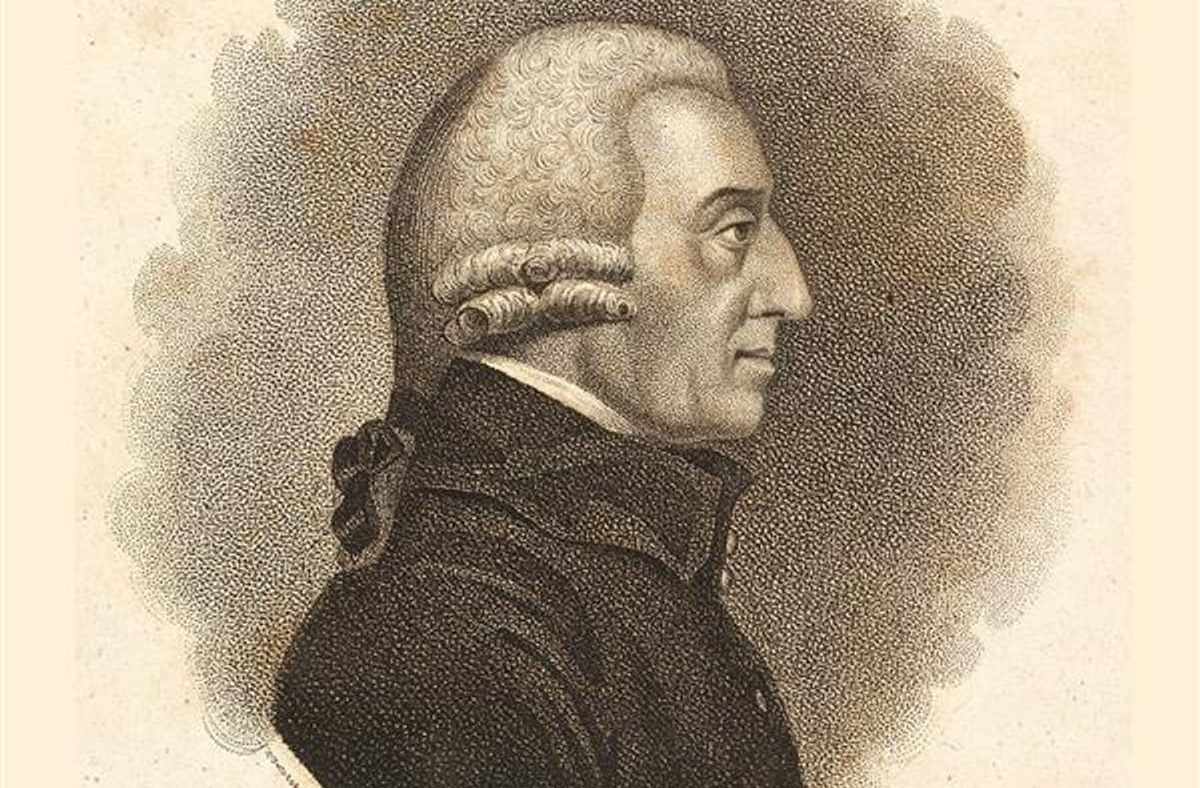The founding father of economics: Who is Adam Smith?
His famous book is among the ten fundamental works that have been written so far and have played a decisive role in changing the destiny of humanity.

British economist. He was born in Kirkcaldy, Scotland, in 1723. He was educated at Glasgow University and Balliol College, Oxford. He was a professor of logic and ethics at Edinburgh and later Glasgow Universities. He remained in teaching for 12 years. During this assignment, he published his first work, Theory of Moral Sentiments, in 1759. He later became the tutor of the duke of Buccleuch. He made friends with the duke in France. On his return to England, he published "An Inquiry into the Nature and Causes of Wealth of Nations", one of the main works of economics. In 1778 he was appointed customs commissioner in Scotland (Edinburgh). He remained in this post until his death in 1790.
Smith is considered the founder of capitalism and the father of economics due to the views and principles he put forward in his book The Wealth of Nations. According to Adam Smith, individuals, while pursuing their own interests, also serve public interests. Adam Smith, the state; Except for infrastructure services and economic activities that individuals cannot achieve, he claimed that it does not interfere with economic life and that economic activities can be efficient thanks to the division of labor.
Adam Smith's most important work is undoubtedly The Wealth of Nations. There is no doubt that The Wealth of Nations is among the ten fundamental works written so far that have played a decisive role in changing the destiny of humanity. The year of its publication, 1776, is one of the breaking moments in history in terms of both creating a revolution in economic thought and the emergence of a new way of thinking, a systematic approach to understanding the nature of wealth and economic reality. The end of British colonialism in North America with the victory of the American War of Independence in the same year and the publication of the Declaration of Independence, which defended fundamental rights and freedoms in an impressive language, make 1776 one of the turning points of modern history, both economically and politically.
A detailed discussion of the intellectual-intellectual legacy that Adam Smith left to the next generations within the framework of the Wealth of Nations requires much more voluminous studies. However, by cutting the long story short, it is possible to summarize the legacy in question under three headings: 1) Rejecting mercantilism and showing an alternative path to wealth, 2) The Invisible Hand doctrine, which emphasizes the error of seeking a conflict between individual interest and social interest, and 3) Protectionism. the superiority of free trade.
One of the controversial issues with Smith is the unfair criticism leveled at him in the context of homo economicus and the legitimation of self-interest. In other words, one of the issues that Smith is most criticized for is his claim that he glorifies self-interest or self-interest and selfishness. Accordingly, Smith is the inventor of the "homo-economicus", the legitimator of the greedy person who thinks of nothing but his own self-interest, accepts selfishness as normal, flags self-interest with an invisible hand, etc.
However, what Adam Smith did is not a justification or a wish, but a determination. Man is an entity that often prioritizes his own interests, thinks of himself before others, and pursues his own interests. This is not a phenomenon that we are unfamiliar with.
The Life of Adam Smith
Adam Smith began studying moral philosophy under Francis Hutcheson at the University of Glasgow at the age of fourteen. Adam Smith's passion for freedom, law, and freedom of expression flared up here. Adam Smith began studying at Balliol College, Oxford in 1740, but dropped out in 1746 to become a critic of Oxford's franchise control. In 1748, Adam Smith gave public lectures at Edinburgh University under the patronage of Lord Kames, addressing the art of speech and belles-lettres. Later, Adam Smith took up the subject of "wealth management" and in this period, in his late twenties, Adam Smith addressed the topic of "the clear and simple system of natural freedom", which he would later reveal to the world in his book 'Inquiry into the Nature and Causes of the Wealth of Nations—handed over. Around the year 1750, Adam Smith met David Hume, with whom he would become a very close friend in the future. Adam Smith became a regular at Edinburgh Poker Club with his other friends who played an important role in the emergence of the Scottish Enlightenment.
Adam Smith's father, who was a Christian, was deeply religious and belonged to the moderate wing of the Scottish Church. Although it is said that the reason behind Adam Smith's departure to England was that he wanted to pursue a career in the Church of England, there is no definite evidence about this issue and it is known that Adam Smith returned to Scotland as a pro-deism. In addition, Adam Smith returned from the church he was sent to by his father when he was a child. Adam Smith philosophically saw religion as an obstacle to the economy and thought through atheism. In many ways, he agrees with Darwin.
In 1751, Smith was appointed professor of logic at Glasgow University, and professor of moral philosophy the following year. In his lectures, Adam Smith covered ethics, colloquialism, law, political economy, and "police and income." Adam Smith published The Theory of Moral Sentiments in 1759, in which he brought together some of his lectures in Glasgow.
